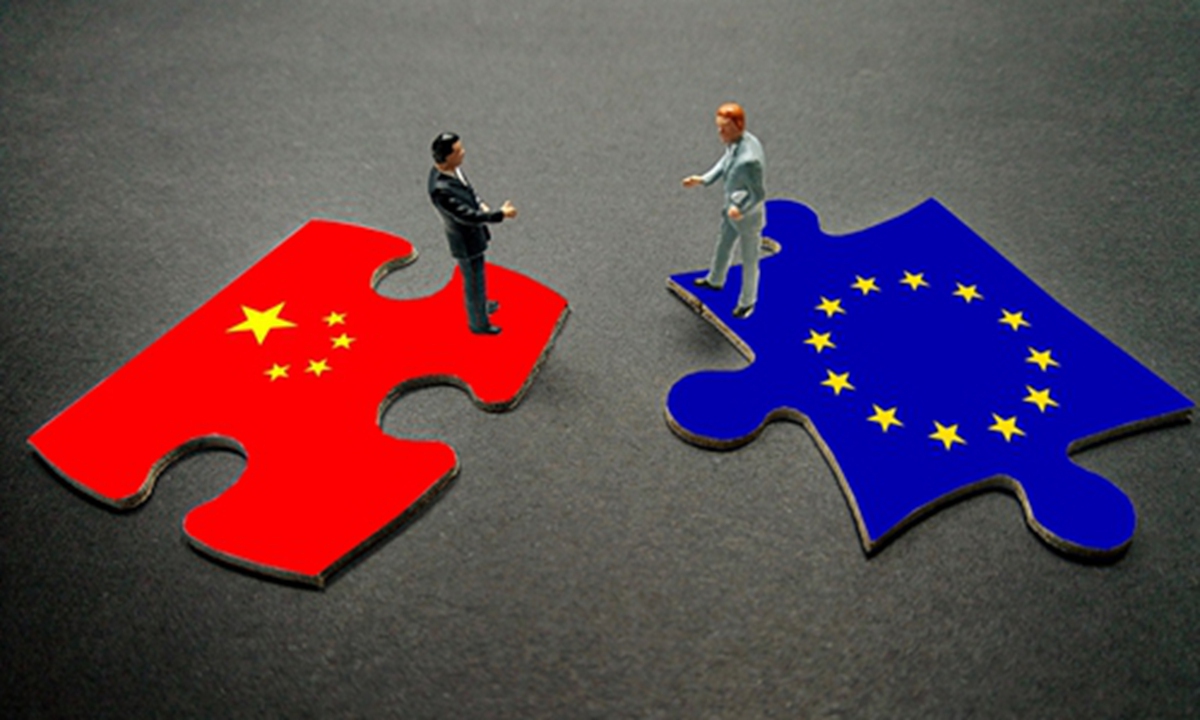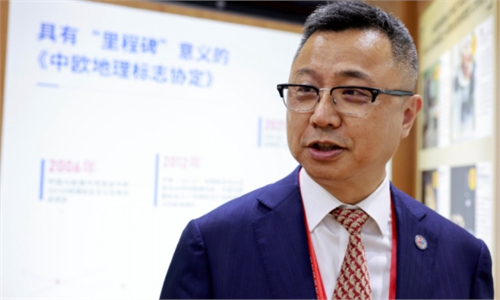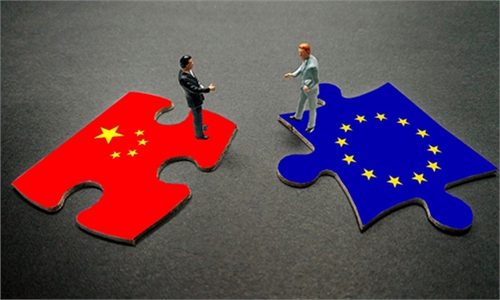
China-EU relationship Photo: VCG
Europe cannot ignore China's role as a key trading partner and important geopolitical player that could help put an end to the conflict in Ukraine, or provide debt relief for low-income countries, Spanish Economy Minister Nadia Calvino said on Tuesday, Reuters reported.Encouragingly, such rational voices among senior European officials are gaining volume in the wake of French President Emmanuel Macron's fruitful China trip and "strategic autonomy" remarks, breaking the silence against the longstanding suppression from the so-called political correctness in the West.
On his plane trip back after concluding his visit to China, Macron emphasized that "the great risk" Europe faces is that it "gets caught up in crises that are not ours, which prevents it from building its strategic autonomy," according to Politico. On a flight from Beijing to Guangzhou last week, Macron reportedly noted that the EU should avoid becoming a "vassal" of the US on China.
In an environment in which unfriendly voices of some European politicians against China that have been raging for some time and have caused damage to China-EU relations, Macron's sober remarks are beneficial as it calls for promoting cooperation through negotiating rather than escalating tensions by exaggerating differences, pointing to the right direction for China-EU ties: de-risk, not "decouple."
Not surprisingly, the French leader's pragmatic views have drawn much support in Europe. European leaders are becoming increasingly favorable toward Macron's push for "strategic autonomy" away from the US, Charles Michel, President of the European Council, said Tuesday, according to the Politico. French Finance Minister Bruno Le Maire on Tuesday said Europe must not be pushed around due to the rivalry between the US and China. "Just because we're US allies doesn't mean we should be against China," he said, as reported by Bloomberg.
The reason why these senior European officials' remarks are becoming rational, first of all, because they respect the facts. For example, the Spanish Economy Minister admitted that whether it is the Ukraine issue or other diplomatic issues, China plays the important role of a stabilizer. Regarding the debt problems of low-income countries, China is not a so-called trap-setter, but the biggest debt-alleviation provider and contributor to local sustainable economic development.
In addition, these European officials' view on China policy is in the EU's own interests. For such an important contributor to global economy that cannot be ignored, Europe should not follow the US' confrontation approaches from the perspective of its own economic, security, political and other interests. One-sided exaggeration of differences with China is a drag on economic and trade cooperation, especially at this moment when the European economy is in critical phase of post-epidemic recovery, and it also needs to recover from impacts such as the energy crisis caused by the geopolitical conflict in Ukraine.
For Europe, it means that when making decisions, it is necessary to strike a balance between the important ally the US and the important partner China. If Europe is completely hijacked by the position of the US on semiconductor supply chain restructuring and Taiwan question, its cooperation with China will inevitably be damaged, which in turn will damage its own interests.
With more officials from the EU scheduled to visit China, it is hoped that the recovery of China-EU relations can be consolidated. It is hoped that rational voices will gradually grow and play a more positive role in deepening cooperation between China and the EU. This is beneficial for the European economy and stability. Deepening cooperation between China and the EU, while properly managing differences, can also inject positive energy into global peace and prosperity.
The author is a reporter with the Global Times. bizopinion@globaltimes.com.cn



